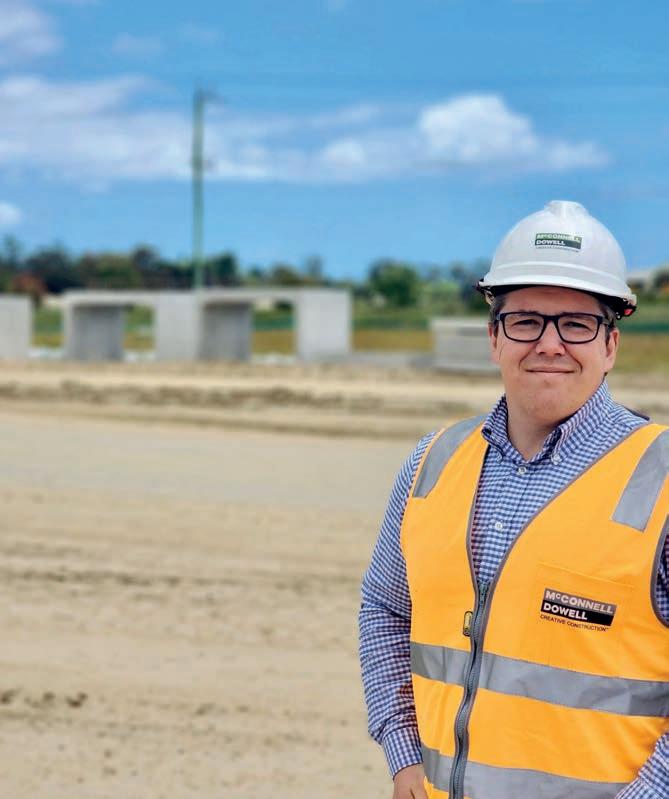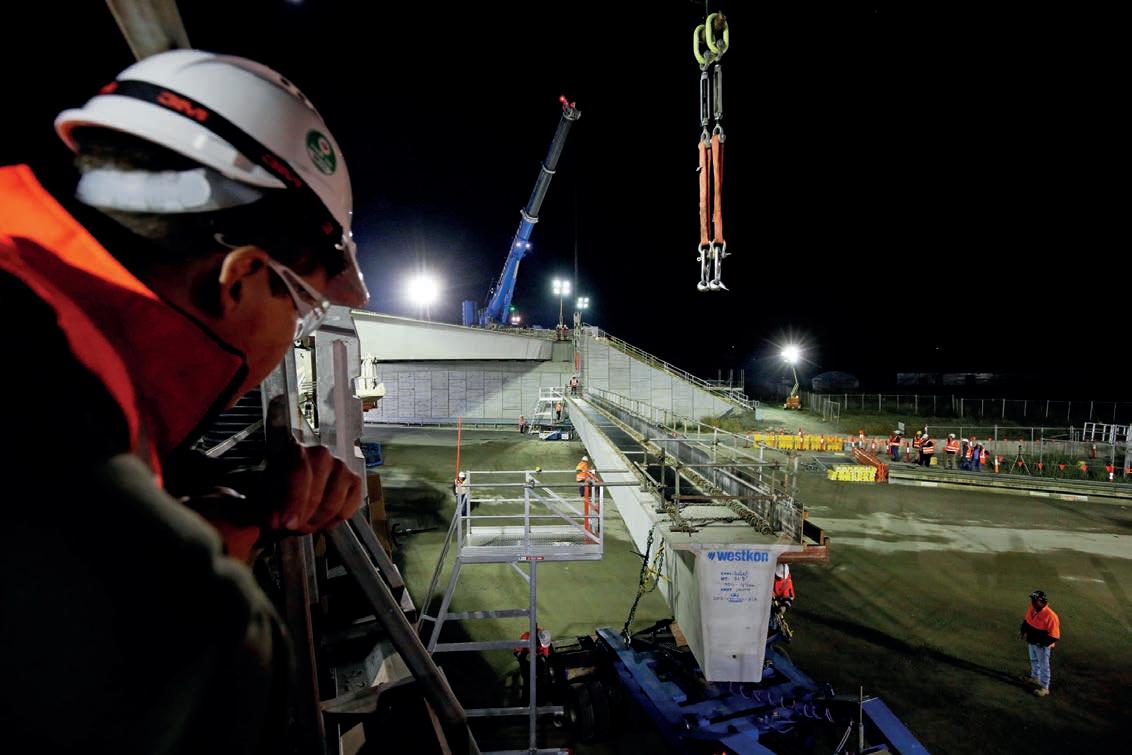
4 minute read
FOCUS Mental health and wellbeing Embracing an integrated approach to wellness
Paving the way for improved mental health and wellbeing in the construction industry, McConnell Dowell has recently adopted The Integrated Approach to Wellness across its operations.
Construction is a core industry of the Australian economy and supporting the mental wellbeing of our construction workforce is vital to the sectors continued success. One construction company determined to promote good mental health and wellbeing not only within its business, but industry wide, is McConnell Dowell.
The Creative Construction Company has successfully delivered iconic infrastructure around Australia and the world, and its success stems from its investment in its people.
McConnell Dowell’s Regional Health & Safety Manager - Victoria/Tasmania, Grant Fuller has been in health and safety management for over 10 years. Originally from the United States, Fuller moved to Australia in 2012 and quickly developed a passion for cultivating and supporting healthy workplace cultures.
“When I first arrived in Australia, I started my safety journey in the civil construction sector and over the next few years started to shift my focus to the psychological aspects of health and safety,” says Fuller. “I started focusing on the culture aspect quite early, and in 2016 identified a need for more mental health and wellness support in the construction industry as a whole.”
“At that time, it was an industry that had a lot of people who didn’t seem to be in a good headspace or overly engaged, and so I began searching for the cause.”
After heading down a path of discovery, Fuller found that ‘burnout’ is one of the causes of poor mental health and wellbeing in the construction industry. It’s a demanding industry with traditionally long work hours, tight deadlines and high demands, and ‘burnout’ is a common psychological result of these factors.
You would be hard-pressed to find a construction company that doesn’t have stringent standards, procedures and support around physical safety. Yet a report conducted for suicide prevention and support group MATES in Construction found construction workers are six times more likely to die from suicide than an accident at work.
Fuller has spent his career championing improved workplaces within the construction industry by building psychologically safe environments. In 2018, he partnered with senior business leaders from eight major infrastructure construction companies and Professor Luke Downey from Swinburne University of Technology to deliver a report on the mental health of the white-collar population within the Australian construction industry.
“We wanted to actually attain figures around how the industry is supporting the mental health and wellbeing of its people,” explains Fuller. “With the financial support of eight major infrastructure companies, we were able to come up with enough funding for the survey and report to be undertaken and completed in June 2018.”
“The Downey-Swinburne Report came out shortly after, with over 680 respondents to the survey from a massive cross section of the construction industry, showing how interested people were in this space within our industry.”
Before the report was released to the public, Professor Downey invited the participating leaders to the university to hear the findings firsthand, including Fuller. As the findings were shared with the group, Fuller says the room fell silent with everyone in shock.
“Everyone knew that there was going to be negative impacts to mental health within the industry, but nobody knew it was going to be as bad as it was,” he says. “The report highlighted high levels of stress, anxiety and depression among the surveyed construction professionals, up to four times population norms.”
“Work/life dissatisfaction rates were twice that of the population norm with 50 per cent of respondents reporting they felt burnt out and 75 per cent reporting they experienced moderate to high levels of stress.
“We quickly discovered that the survey results are not a sole company issue, this is an industry wide issue, and we need to change it.”
In response to the alarming findings Fuller, along with the senior business leaders who participated in the reports delivery, established Wellness in Infrastructure (WII) – an initiative ‘for-industry-by-industry’.
From there, a steering committee and working group was formed with a focus on bettering the lives of the white-collar population in the construction industry. But the benefits extend far beyond just whitecollar workers explains Fuller.
“If the white-collar management is in a better mental health space there is going to be a trickle-down effect, it’s going to see the blue-collar workforce in a better space as well,” he says. “The working group started on a few different initiatives but one thing that I had been working on for some time was this idea of an integrated approach to mental health and wellness.”
“This approach starts with leadership setting the desired behaviours on a project, which in turn integrates down throughout the team –the goal is to create trust and psychological safety on every job.”
In 2019, Fuller was given the opportunity to join McConnell Dowell as the Health & Safety Manager on the Mordialloc Freeway Project in Melbourne, Victoria. Around the same time, WorkSafe Victoria’s WorkWell Mental Health Improvement Fund came out with its third round of funding allowing consultants to be able to apply for the first time.

Together, a project consortium comprising leadership consultancy company Lysander, Fuller and Professor Downey, in conjunction with Wellness in Infrastructure, established The Integrated Approach to Wellness program. Set to achieve industry-wide cultural change, the program is a framework outlining a roadmap of activities for all levels of construction businesses to build a culture of positive wellness and mental health. With Lysander leading the initiative, the consortium compiled and submitted a grant proposal incorporating the critical findings from the Downey-Swinburne Report to pilot the newly developed program on the Mordialloc Freeway Project.
Over $1 million was successfully secured for the project and the results were staggering. According to psychosocial survey results, participants reported a 60 per cent improvement in work/life balance satisfaction, 46 per cent improvement in depression, 34 per cent improvement in stress and 41 per cent improvement in burnout.
“We absolutely knocked the Mordialloc Freeway Project pilot out of the park because the senior leaders on the project grabbed the program with both hands, embraced it, believed in it, and put emphasis and importance on it,” says Fuller. “The rest of the team followed in the senior leaders’ footsteps, and we were able to really kick some goals.”
Following the success of the pilot, The Integrated Approach to Wellness program has continued to be rolled out across Victoria with plans to be rolled out nationally in 2023. Fuller has been working closely with various








